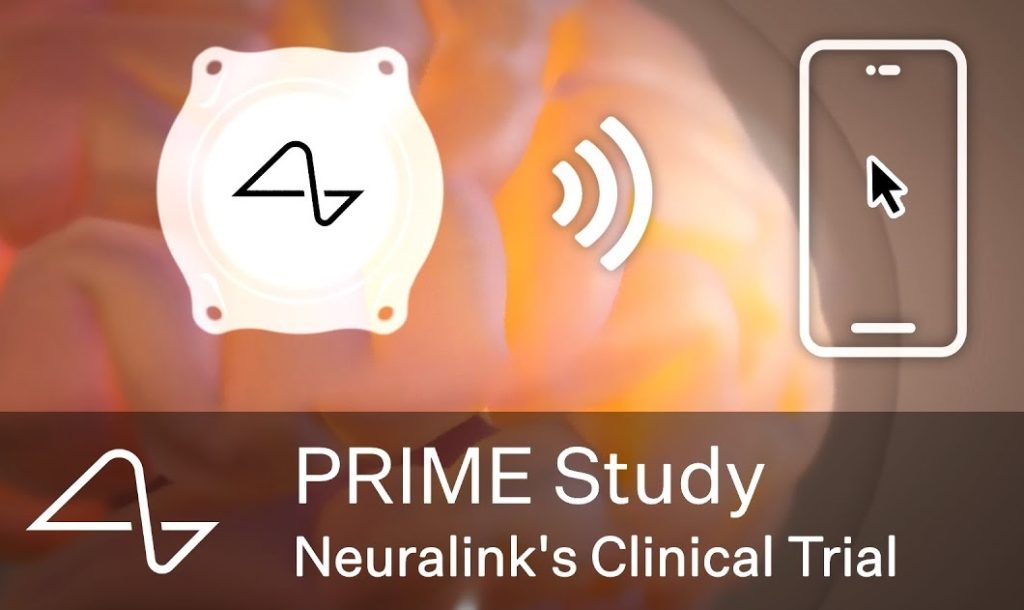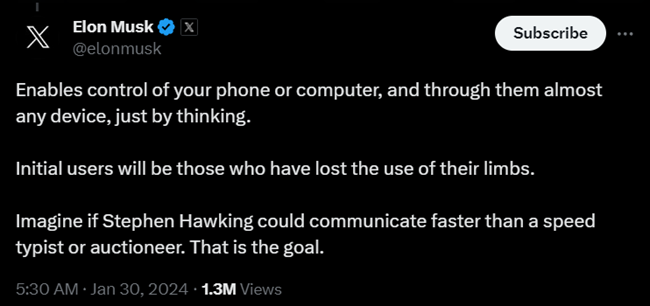
Elon Musk’s company, Neuralink, successfully implanted its device in a human for the first time recently. The patient is recovering well, according to Musk’s post on X (formerly Twitter).
Neuralink is working on a brain implant to assist patients with severe paralysis in controlling external devices using neural signals. The company began recruiting patients for its first human trial after receiving FDA approval in May.
Musk revealed that the initial Neuralink product, called Telepathy, enables users to control phones or computers by just thinking. The goal is to empower individuals who have lost limb functionality, like Stephen Hawking, to communicate more efficiently.
Neuralink has previously conducted tests on animals, showcasing monkeys playing games using their brains. However, these experiments raised concerns from animal rights groups.
Neuralink’s PRIME Study
The company’s PRIME (Precise Robotically Implanted Brain-Computer Interface) Study involves a fully-implantable brain-computer interface (BCI) to help paralyzed individuals control external devices with their thoughts.

The study, uses the R1 Robot to place the N1 Implant’s threads in the brain’s movement control region. The BCI’s initial aim is to allow people to control a computer cursor or keyboard using their thoughts alone.
The study targets individuals with quadriplegia due to spinal cord injury or ALS, aiming to provide a generalized brain interface for unmet medical needs.
Announcing the Neuralink’s Clinical Trial, Elon Musk, posted:
The first individual underwent an implant from Neuralink yesterday and is recuperating well. Early outcomes indicate promising neuron spike detection. Enables control of your phone or computer, and through them almost any device, just by thinking.
Initial users will be those who have lost the use of their limbs. Imagine if Stephen Hawking could communicate faster than a speed typist or auctioneer. That is the goal.


